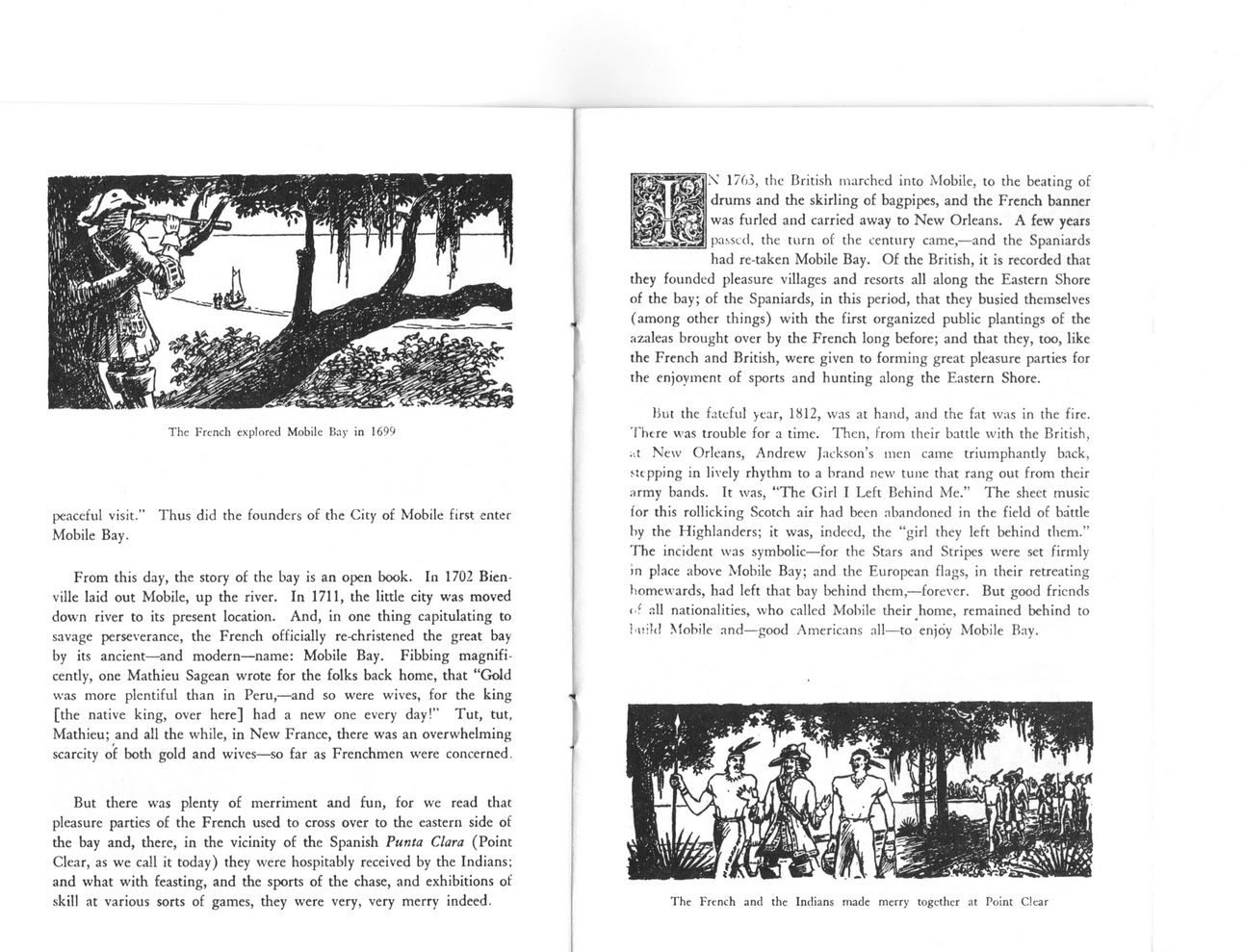This text was obtained via automated optical character recognition.
It has not been edited and may therefore contain several errors.
The Frcnch explored Mobile Bay in 1699 peaceful visit.? Thus did the founders of the City of Mobile first enter Mobile Bay. From this day, the story of the bay is an open book. In 1702 Bienville laid out Mobile, up the river. In 1711, the little city was moved down river to its present location. And, in one thing capitulating to savage perseverance, the French officially re-christened the great bay by its ancient?and modern?name: Mobile Bay. Fibbing magnificently, one Mathieu Sagean wrote for the folks back home, that ?Gold was more plentiful than in Peru,?and so were wives, for the king [the native king, over here] had a new one every day!? Tut, tut, Mathieu; and all the while, in New France, there was an overwhelming scarcity of both gold and wives?so far as Frenchmen were concerned. But there was plenty of merriment and fun, for we read that pleasure parties of the French used to cross over to the eastern side of the bay and, there, in the vicinity of the Spanish Punta Clara (Point Clear, as we call it today) they were hospitably received by the Indians; and what with feasting, and the sports of the chase, and exhibitions of skill at various sorts of games, they were very, very merry indeed. N 1763, the British marched into Mobile, to the beating of drums and the skirling of bagpipes, and the French banner was furled and carried away to New Orleans. A few years passed, the turn of the century came,?and the Spaniards had re-taken Mobile Bay. Of the British, it is recorded that they founded pleasure villages and resorts all along the Eastern Shore of the bay; of the Spaniards, in this period, that they busied themselves (among other things) with the first organized public plantings of the azaleas brought over by the French long before; and that they, too, like the French and British, were given to forming great pleasure parties for the enjoyment of sports and hunting along the Eastern Shore. But the fateful year, 1812, was at hand, and the fat was in the fire. Thtre was trouble for a time. Then, from their battle with the British, .:t New Orleans, Andrew Jackson?s men came triumphandy back, stepping in lively rhythm to a brand new tune that rang out from their army bands. It was, ?The Girl I Left Behind Me.? The sheet music for this rollicking Scotch air had been abandoned in the field of battle by the Highlanders; it was, indeed, the ?girl they left behind them.? The incident was symbolic?for the Stars and Stripes were set firmly in place above Mobile Bay; and the European flags, in their retreating homewards, had left that bay behind them,?forever. But good friends c f all nationalities, who called Mobile their home, remained behind to build Mobile and?good Americans all?to enjoy Mobile Bay. The French and the Indians made merry together at Point Clear

Alabama Point-Clear-Cavalcade-05